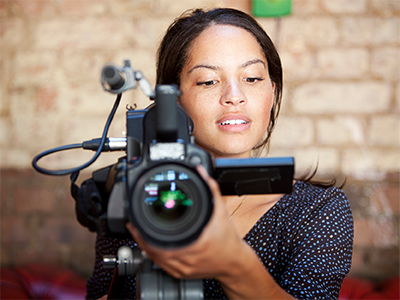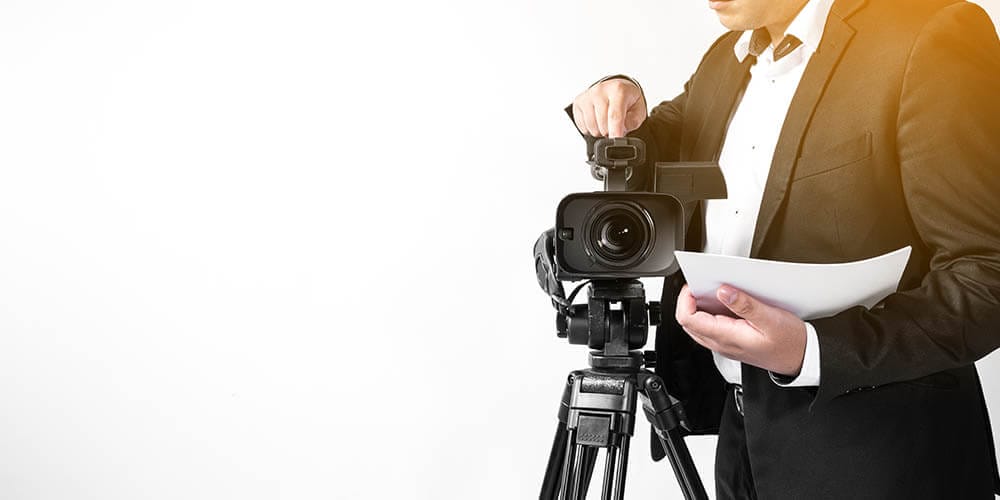The Duty of Legal Videography in Depositions and Trials
Legal videography has emerged as an essential tool in both depositions and trials, providing a complex technique to recording witness testimonies. As lawful professionals increasingly identify its value, it motivates a much deeper examination of exactly how these aesthetic records can influence juror assumptions and test outcomes.

Value of Legal Videography
Legal videography plays an essential role in the documents and discussion of depositions and tests. This specialized area combines technical skills with legal expertise to develop a trusted document of process that can dramatically affect instance end results. The visual facet of legal videography boosts the understanding of witness statement, allowing jurors and judges to observe not only the talked words however additionally the behavior, feelings, and body language of the witnesses.
On top of that, lawful videography gives an objective account of events, reducing the capacity for misinterpretation that can accompany composed records alone. This aesthetic documents serves as an important device throughout trial discussions, assisting in a clearer and even more convincing narrative for both plaintiffs and offenders. Furthermore, the ability to replay video sections throughout court proceedings makes it possible for lawful teams to stress key points, enhancing their debates effectively.
The relevance of lawful videography expands past the court room; it also plays a vital function in maintaining evidence for future reference, whether for charms or more legal activity. Its assimilation right into the legal procedure is important for making certain a fair and accurate depiction of the realities, inevitably contributing to the quest of justice.

Process of Legal Videography
While catching the nuances of depositions and trials, the procedure of lawful videography involves numerous essential steps that ensure high-quality, precise recordings. At first, an expert lawful videographer prepares by evaluating the situation products and understanding the certain requirements of the deposition or trial. This prep work includes acquainting themselves with the individuals and the context, which helps in capturing significant information.
On the day of the recording, the videographer establishes up the needed equipment, which commonly includes high-def electronic cameras, microphones, and correct illumination. Ensuring ideal angles and sound quality is essential, as it directly impacts the performance of the recording. The videographer interacts with attorneys and individuals to establish methods, making sure that everybody understands the recording procedure.
During the deposition or trial, the videographer diligently tapes the procedures, paying very close attention to both verbal and non-verbal cues. This consists of capturing the behavior and responses of witnesses and lawyers. After the session wraps up, the videographer might edit the video footage for clearness and compliance with legal requirements, generating an end product that accurately reflects the procedures for future referral and usage in lawful contexts.
Benefits in Depositions
The consolidation of videography in depositions provides countless benefits that boost the overall procedure of gathering evidence. One main advantage is the ability to capture witness statements with visual and acoustic integrity, offering a more precise representation of the witness's demeanor, tone, and body movement. This multidimensional approach permits attorneys and courts to examine credibility a lot more properly than conventional written records alone.
Additionally, videographed depositions act as an effective tool for maintaining testament. Needs to a witness ended up being unavailable for trial, their videotaped deposition can be played in court, ensuring that their proof stays easily accessible and relevant. This element substantially decreases the danger of losing critical information that might affect instance results.

Last but not least, videography enhances the total professionalism of the deposition procedure, instilling confidence in clients regarding the thoroughness of their lawful representation (legal videography). By leveraging technology, lawyers can significantly boost the performance of depositions
Influence On Tests
In lots of trials, the integration of videography can substantially influence the discussion of proof and the jury's assumption. Lawful videography records witness testaments and crucial evidence in a dynamic layout, permitting jurors to engage with the Recommended Reading material on numerous degrees. This visual part boosts the storytelling facet of a trial, providing context and psychological resonance that conventional text-based proof may do not have.
Additionally, video recordings can function as powerful tools for impeachment during interrogation. When inconsistencies arise in between a witness's previous statements and their courtroom testament, video clip proof supplies an unbiased recommendation that can guide jurors' opinions. This immediacy and clearness can reinforce the reliability of a party's story while simultaneously weakening opposing debates.

Future Trends in Legal Videography
As we look towards the future of legal videography, numerous arising fads guarantee to reshape its function within the courtroom. One substantial trend is the combination of expert system (AI) in video analysis and editing. AI can streamline the process of determining essential minutes in taped depositions, allowing attorneys to swiftly access relevant web content, thereby boosting efficiency in instance prep work.
Furthermore, the rise of online reality (VR) and boosted truth (AR) innovations is expected to change exactly how jurors experience evidence. legal videography. By submersing jurors in a simulated setting, these innovations can supply a much more extensive understanding of complex situations, resulting in more informed deliberations
In addition, the enhancing demand for remote depositions, sped up by the COVID-19 pandemic, will likely continue. Legal videographers will certainly need to adapt to article source brand-new software application and systems to ensure high-grade recordings in virtual settings.
Lastly, the growing focus on data security will certainly require more stringent protocols for storing and sharing video clip evidence. As the legal landscape develops, legal videographers have to stay abreast of these patterns to preserve their significance and performance in the judicial process.
Final Thought
In summary, legal videography offers an important function in the judicial process, enhancing the integrity of depositions and tests. By capturing the nuances of witness statements, this tool not just protects necessary proof yet additionally help in offering info successfully to jurors. The importance of visual documentation in examining reputation and assisting in cross-examination can not be overemphasized. As technology remains to evolve, legal videography is poised to further change its function within the lawful landscape.